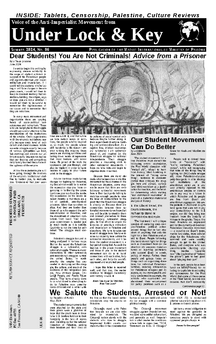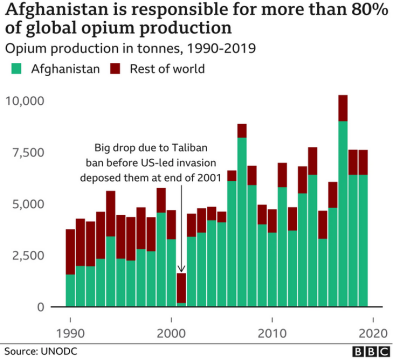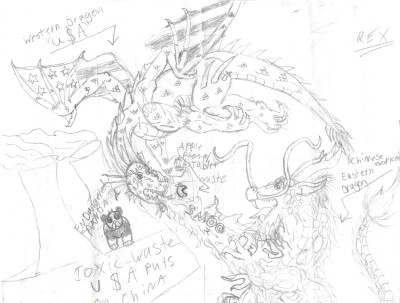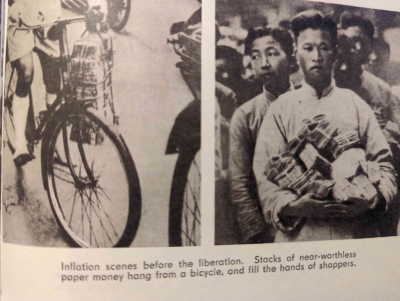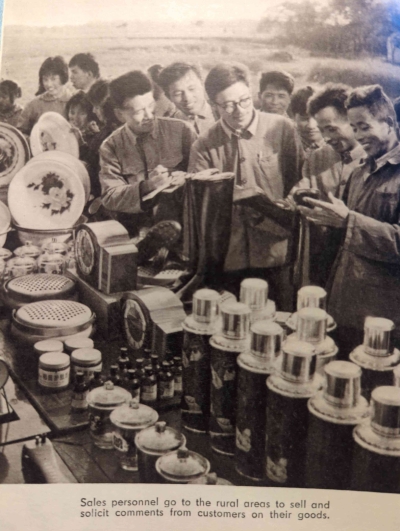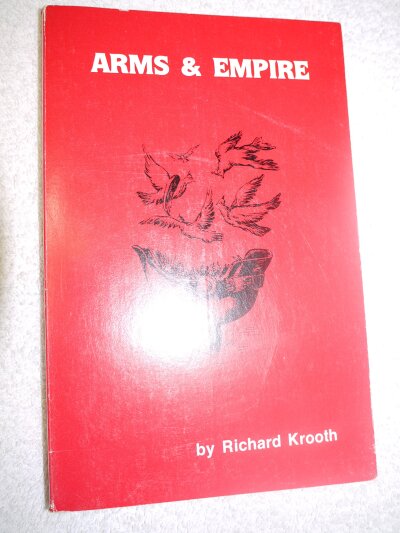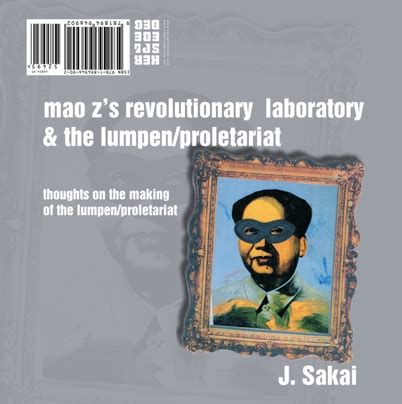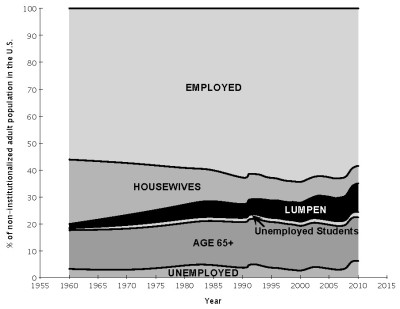
Prison Banned Books Week: A United Front for Knowledge

There are 65 organizations who have signed on to the 2024 Prison Banned Books Week campaign. What unites us is a belief that there is good in lifting the restrictions on literature that U.$. prisoners have access to. Without having asked all of the participants, we’d wager that we all agree that by understanding the past and understanding the ideas of others, that people can better understand our present and act on it in a way that benefits humynity overall. There are certain ideas that we may take from the Age of the Enlightenment that we all share.
Finding Truth in Books
Where many of the organizations in this campaign probably disagree with us is in seeing that each piece of literature has a class character to it. As part of our world view as Marxists, in a class society, we recognize class character in everything that humyns create.
There is an adage that the truth is hidden in books. But as we’ve discussed before, not all books are true or based in materialist science.(1) In a sense, we go to the library and read books to bury the lies within books and all around us. We must understand different arguments and ways of thinking in order to see their accuracy or fallacy.
Rather than think of the “marketplace of ideas” where a bunch of people bring their individual thoughts to compete with others (the individualist view), we see a war between two main class positions in the realm of ideas (and elsewhere) – that of the bourgeoisie vs. that of the proletariat. There is a reason why prisoners are the most restricted readers in this country, and why New Afrikan, Indigenous and Chican@ literature are targeted as “Security Threat Group” material.
Cultural Revolution
If there is one phenomenon that defines Maoism, it is the Great Proletarian Cultural Revolution (GPCR) in China (1966-1976) and the lessons learned from it. But wait, didn’t they like burn books and punish academics during the GPCR?
In essence, the GPCR was an unleashing of almost a billion people to participate in the war between the proletarian and the bourgeois lines in politics and production. Not only that, this was a people that were more than 90% illiterate before the liberation of China by the Communist Party in 1949.
“My conclusion… was that China had made greater progress in liberating masses of people from illiteracy and bringing millions some knowledge of scientific and industrial technique than any nation had ever done in so short a time.
“…By 1960… about $2,600,000,000) was devoted to education and science, or fifty percent more than the direct budgetary military expenditure….
“In 1960 United States expenditure on education at all levels was less than four percent of the national income, or slightly less than the $18,000,000,000 Americans spent for alcoholic beverages and tobacco.
“In 1957 Premier Chou En-lai had estimated illiteracy over the whole country at seventy percent. Mr Tsui said that by 1960 the percentage had been reduced… to about sixty-six percent for the rural areas and twenty-four percent in the cities.”(2)
By 1979, three years after the GPCR, illiteracy was down to 30%.(3) Yet the GPCR is known in the United $tates for shutting down schools and attacking professors. These things were central to the student struggles on campuses across China. And in these struggles there were Red Guard factions taking up different positions and political lines, fighting against each other. Students were challenging the hierarchical roles in the university and the traditional methods of study, without always having the answers. There are even documented cases of Red Guards burning religious books as a means of attacking reactionary ideas. But this was not a coordinated effort by the state as is happening in prisons and schools across the United $tates today, the so-called “land of the free”. We can see parallels to the critiques of the Chinese student movement in the United $tates today where “right to an education” is being used to silence protests against U.$. arms being used for a genocide in Palestine.
Interestingly, after praising Chinese literacy in the quote above, Edgar Snow quotes a U.$. Library of Congress staffer stating that the Chinese concept of education “is not distinguishable from indoctrination, propaganda and agitation.”(2) This is where we would again stress the class perspective, and how propaganda is in the eye of the beholder:
“Westerners perceive Chinese education under Mao as”propaganda,” because it encourages values and goals which contradict the goals of capitalism. These values and goals taught in China during the Cultural Revolution were consistent with the building of socialism. Education in Western nations is not perceived as “propaganda” by those who, consciously or not, agree with the goals of capitalism/imperialism and patriarchy. Similarly, advertising for capitalist products, while recognized as very influential on people’s opinions and actions, is not perceived as “brain-washing” by those who benefit from capitalism and have therefore decided to tolerate it.”(4)
The totalitarian control or corporations like Global Tel*Link, JPay, and Securus over what prisoners read, write, listen to and communicate with people outside is a good example of what our society accepts.
Allyn and Adele Ricket wrote about their experience as prisoners in China for providing intelligence to the United $tates Government. This is one of the best accounts of the Chinese socialist approach to education/re-education. They were imprisoned during the early years of the revolution and witnessed the change in approach, partially due to changing conditions (the new government had been established and prisoners were less rebellious) and partially due to lessons learned. “By 1953… the authorities acknowledged that their former overemphasis on suppression had been a mistake.”(5)
Their description of staff at their prison sounds unbelievable to a U.$. prisoner:
“he always seemed to have time to listen to the troubles of one or another of the prisoners or to do countless little things which showed how serious he was in looking out for the welfare of his charges.”
At first Allyn Rickett thought this was a bit of a propaganda show, but this incident changed eir mind:
“I looked through the crack in the palisade built around our cell window to obstruct the view. There was Supervisor Shen patiently going along the line turning every article of the prisoners’ clothing to make certain they would be dry by the time we were to take them in after supper.”(6)
Regarding censorship, the Ricketts also compare the news in China over time and to the Amerikan press:
“Publication of news is determined by its usefulness in increasing the people’s social consciousness and morality and furthering the Communist Party’s program for the development of the country. Therefore the content of the news is limited to what the authorities feel will serve these ends.
“To our mind, no matter how sincere in their purpose the authorities may be, in violating the principle of the right to know they are taking a dangerous step. …One of the most encouraging recent developments in China has been a liberalization of this concept of a controlled press. [written in 1957]
“…Our experience in living in and reading the press of both countries has led us to the conclusion that the Chinese today are still receiving a clearer picture of what is happening here than the American people are of what is taking place in China.”(7)
Ten years later the GPCR will begin and “big character posters” were promoted as a way for the masses to express their grievances against Party officials, or other issues they faced. The Chinese experiment in socialism was unique in how it regularly attempted to open up mass participation in ideological struggle and in organizing society as far as could be tolerated without creating chaos. And even then there was some chaos, which is what the GPCR is usually criticized for.
The press is a battleground for class struggle. In a condition where all the books were bourgeois, the socialist government had a lot of work to do to catch up. And this was done largely in face-to-face study groups, whether on campuses, on farms or in prisons.
The ideas of the old system must be surpassed, but not erased. Marx showed how different economic systems gave birth to subsequent systems, and how the ideas evolved to reflect those new systems. This is all important to the understanding of humyn history and to the development and continued advancement of humyn knowledge.
Notes: 1. Melo
X, August 2022, Are Ideas in a Book Materialist?, Under Lock & Key
79.
2. Snow, Edgar, 1970, Red China Today, Random House: New
York, pp.229-231.
3. MAOIST
INTERNATIONALIST MOVEMENT POSITION PAPER ON VIOLENCE, PART II, 26 August
1992
4. MC5,
November 1999, Myths About Maoism.
5. Ricket, Allyn & Adele,
1973, Anchor Books: New York, p.235.
6. Ibid., p.236-7
7. Ibid.,
p.331
